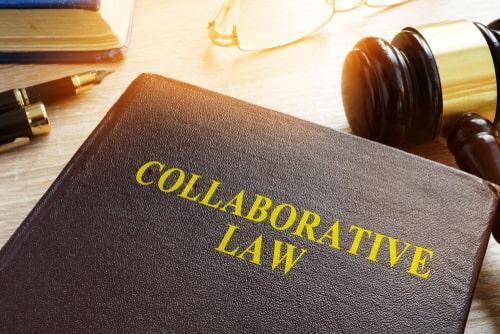630-462-9500
After Hour New Client Telephone Number 630-690-6077
1776 S. Naperville Road, Building B, Suite 202,
Wheaton, IL 60189
What is a Participation Agreement in a Collaborative Divorce?
 The dissolution of a marriage can be an arduous process, both emotionally and financially. When most people think of divorce, they think of a bitter, contentious process. What if there was another way to end a marriage on more amicable terms? As it turns out, there is another way spouses can end their marriage that does not end if lifelong scars for both parties.
The dissolution of a marriage can be an arduous process, both emotionally and financially. When most people think of divorce, they think of a bitter, contentious process. What if there was another way to end a marriage on more amicable terms? As it turns out, there is another way spouses can end their marriage that does not end if lifelong scars for both parties.
If both parties feel as though they are capable of working with each other, then a collaborative divorce may be possible. Collaborative law is a kind of dispute resolution that takes place outside the courtroom, where the parties cooperate to reach a mutually acceptable agreement. If you and your spouse are seeking divorce and believe you can work together, consider consulting with an attorney familiar with collaborative divorces.
What is a Participation Agreement?
To begin the collaborative divorce process, both parties must retain a collaboratively trained attorney and agree to and sign a legally binding contract referred to as a Participation agreement contract. This document commits each party to resolve the dispute according to collaborative principles and guidelines. The settlement will remain the primary objective since the attorneys are hired on their ability to facilitate an acceptable settlement proposal.
The participation agreement usually includes a commitment by the parties to:
-
Negotiate in good faith – This refers to the spouses making genuine conscious efforts to cooperate openly and honestly with one another, working towards a fair settlement.
-
Disclose all relevant information – This refers to the spouses providing accurate financial information, including important documents and other pertinent information.
-
Refraining from making aggressive or disparaging remarks – It is essential that during the collaborative divorce process, spouses maintain civility throughout the process.
-
Work with financial experts, counselors, and meditators as needed – Each party and their attorneys may consult and bring in outside experts like financial advisors or child specialists to participate in the collaborative process.
-
Keep the case out of court – Both parties will refrain from threatening to litigate or take other actions through the court. Failing to settle will result in the termination of the collaborative divorce process. In addition, it will end both parties' attorney's affiliation with the case since the Participation Agreement does not generally allow for collaborative counsel from representing their clients in court if the case goes through the court for litigation. When this happens, both parties will need to hire new attorneys to represent them in court.
Contact a DuPage County Collaborative Divorce Lawyer
If you are considering getting a divorce and do not wish for it to be an all-around terrible experience, consider contacting the knowledge Wheaton collaborative divorce lawyers with The Stogsdill Law Firm, P.C.. Call 630-462-9500 today for a consultation.
Source:
https://www.ilga.gov/legislation/ilcs/ilcs3.asp?ActID=3804&ChapterID=59




















